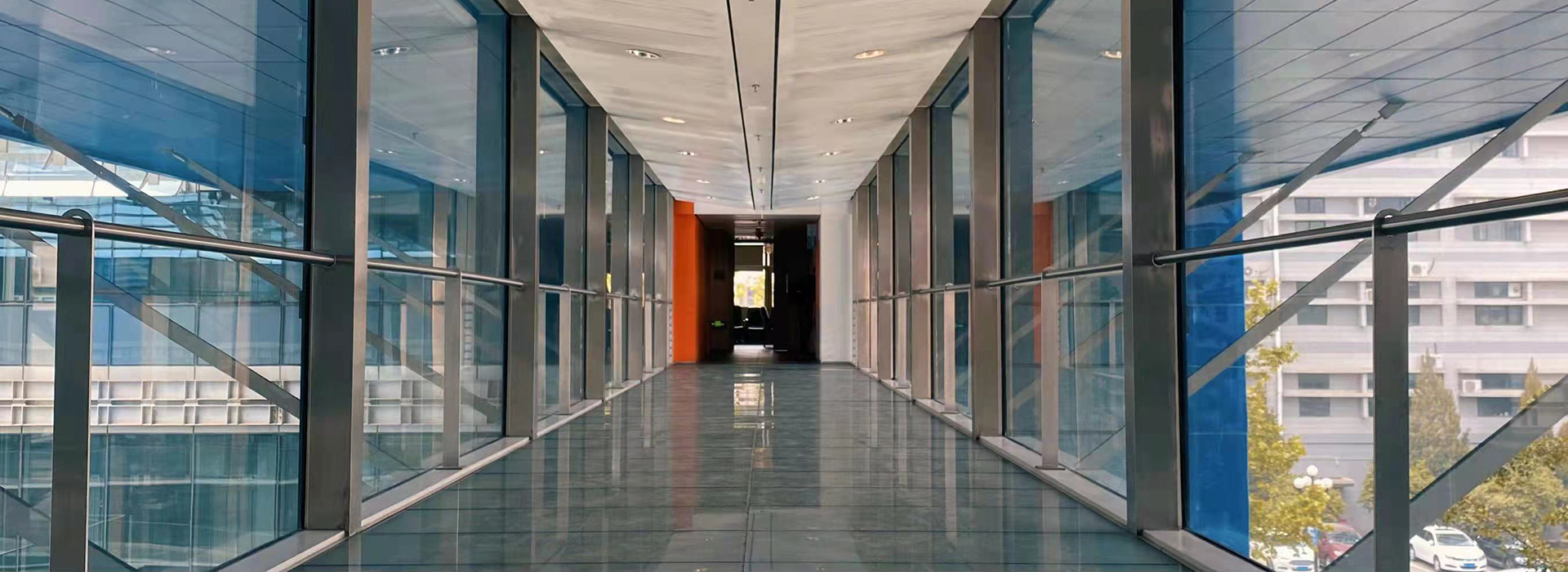The Seventh Model Climate Change Conference of Parties (MCCCOP 7) was successfully held online from September 24 to 25, co-hosted by School of Environment, Tsinghua University and School of Global Governance, Renmin University of China (RUC), with the support of Green Club of Tsinghua, Carbon Neutralization Research Association of Tsinghua and Inner Mongolia Lao Niu Foundation.
Opening Ceremony
On the morning of September 24, the opening ceremony of the MCCCOP 7 took place. The event was attended by Xi Jinying, Vice Chairman of School Council at SOE, Tsinghua; Teng Fei, Deputy Director of the Institute for Energy and Environmental Economics; Cui Shoujun, Deputy Dean of the School of Global Governance at RUC; Han Fei, Director of the School Office; Xue Yuxue, former Director of UNDP Country Office in Afghanistan and Indonesia; Chen Minpeng, Professor of the School of Agricultural Economics and Rural Development at RUC; Fan Xing, Assistant Researcher of International Policy Research Department of the National Center for Climate Change Strategy and International Cooperation; Zhang Yongxiang, Chair of the Paris Committee on Capacity-building (PCCB); Feng Chao, Negotiation Representative of the Chinese Delegation on the UN Climate Change Negotiation on Funds Issue; representatives from the Lao Niu Foundation; and 160 delegates from 34 colleges and high schools across the country.
MCCCOP7 Opening Ceremony Promotional Video
Xi Jinying, in his speech, expressed his sincere gratitude to the experts, teachers, and the Lao Niu Foundation for their guidance and support. He emphasized that this was the second year that Tsinghua and RUC jointly organized the MCCCOP, demonstrating an enduring and deep friendship. Global environmental protection also requires concerted cooperation to achieve win-win results. He hoped that the students participating in this event would enhance their professional quality, deepen their understanding of global issues, strengthen their sense of responsibility as the younger generation, strive to become international, interdisciplinary talents, and shoulder the responsibility of promoting China’s ecological civilization construction and global sustainable development in the future.
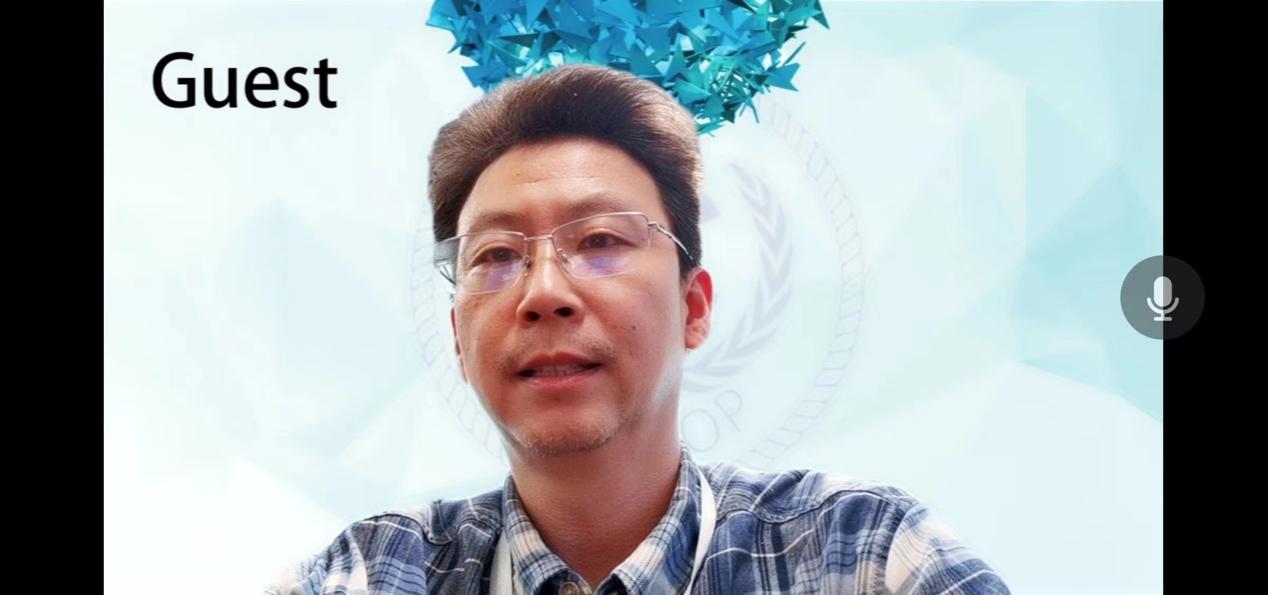
Xi Jinying speaking
Cui Shoujun, in his speech, stated that, over the past two years, the MCCCOP had taken root in academia and embraced diverse opinions, attracting a large number of high school and university students from both inside and outside Beijing to actively participate in climate negotiations. With improvements in faculty size, guest lineup, and student quality every year, the conference has created a branded, regular, and large-scale platform for cross-school collaboration, cultivated a wide range of climate pioneers who actively think about environmental cooperation issues, aspire to solve major problems, strive for excellence, and contribute their knowledge to serve the nation, the world, and the well-being of humanity.

Cui Shoujun speaking
Xue Yuxue, in his speech, pointed out that MCCCOP had become a prime example of Model United Nations activity initiated, led by and served for the youth, attracting middle school, university, and social participants to discuss climate change and other environmental issues, raising public awareness, and promoting positive exchanges among global youth. He hoped that the youth delegates would remember that “the purpose of negotiations is not to win, but to reach a consensus,” and called for global cooperation in addressing climate change through clearly defined goals and actions.
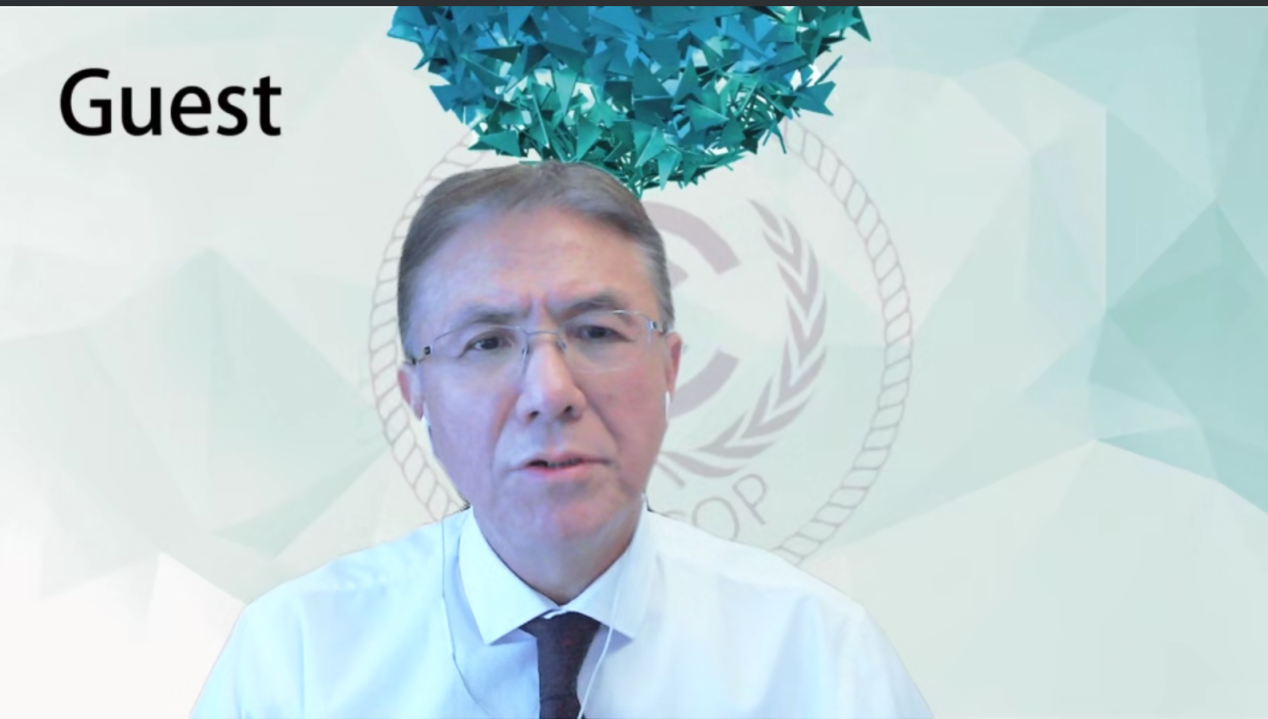
Xue Yuxue speaking
Chen Minpeng, in her speech, expressed her deep gratification at witnessing the rapid development of the MCCCOP over the years and her excitement at working with an increasing number of passionate, proactive, and hopeful comrades to address climate change. As an important stage for young students to participate in climate change negotiations and global climate governance, the MCCCOP further leads the public to face the challenges of climate change directly, understand the rules and procedures of climate negotiations, comprehend the significance of national rejuvenation in the current era, and continue to strive unremittingly for the realization of a shared human destiny.
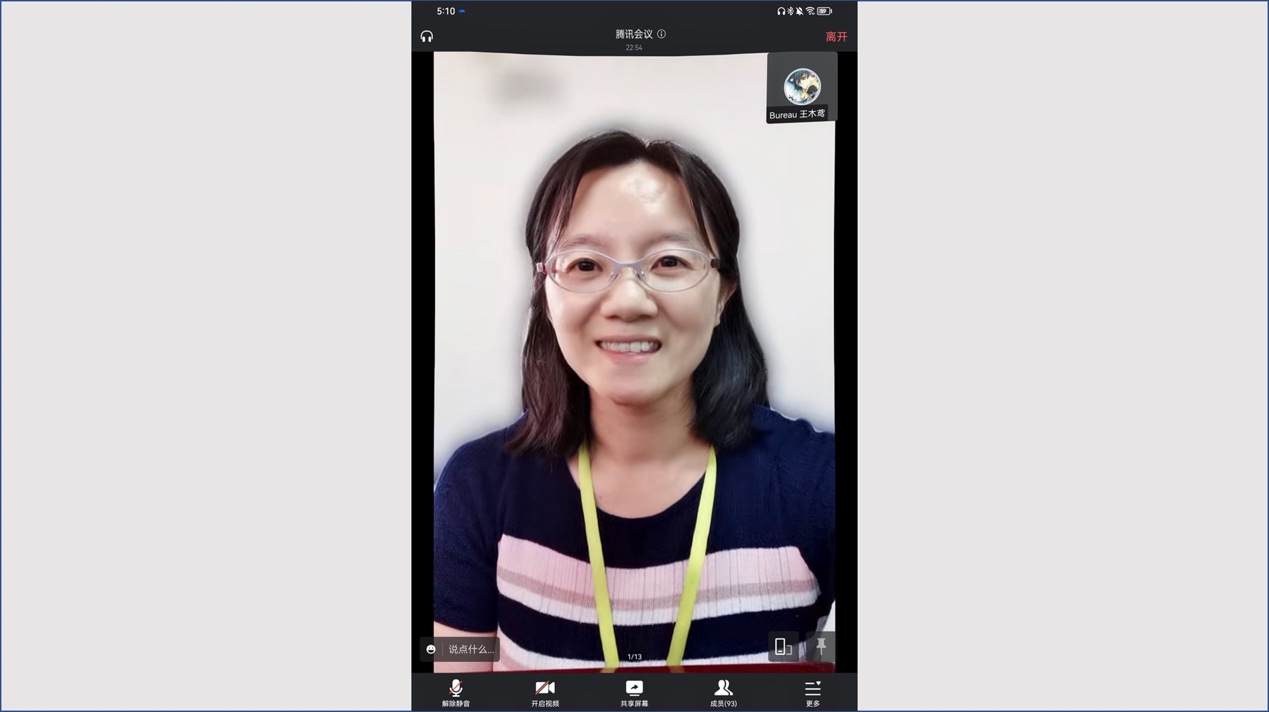
Chen Minpeng speaking
During the two-day conference, 144 representatives from universities such as RUC and Tsinghua, along with 8 chairs and more than 30 conference organizers, worked together to ensure the smooth progress of the event.
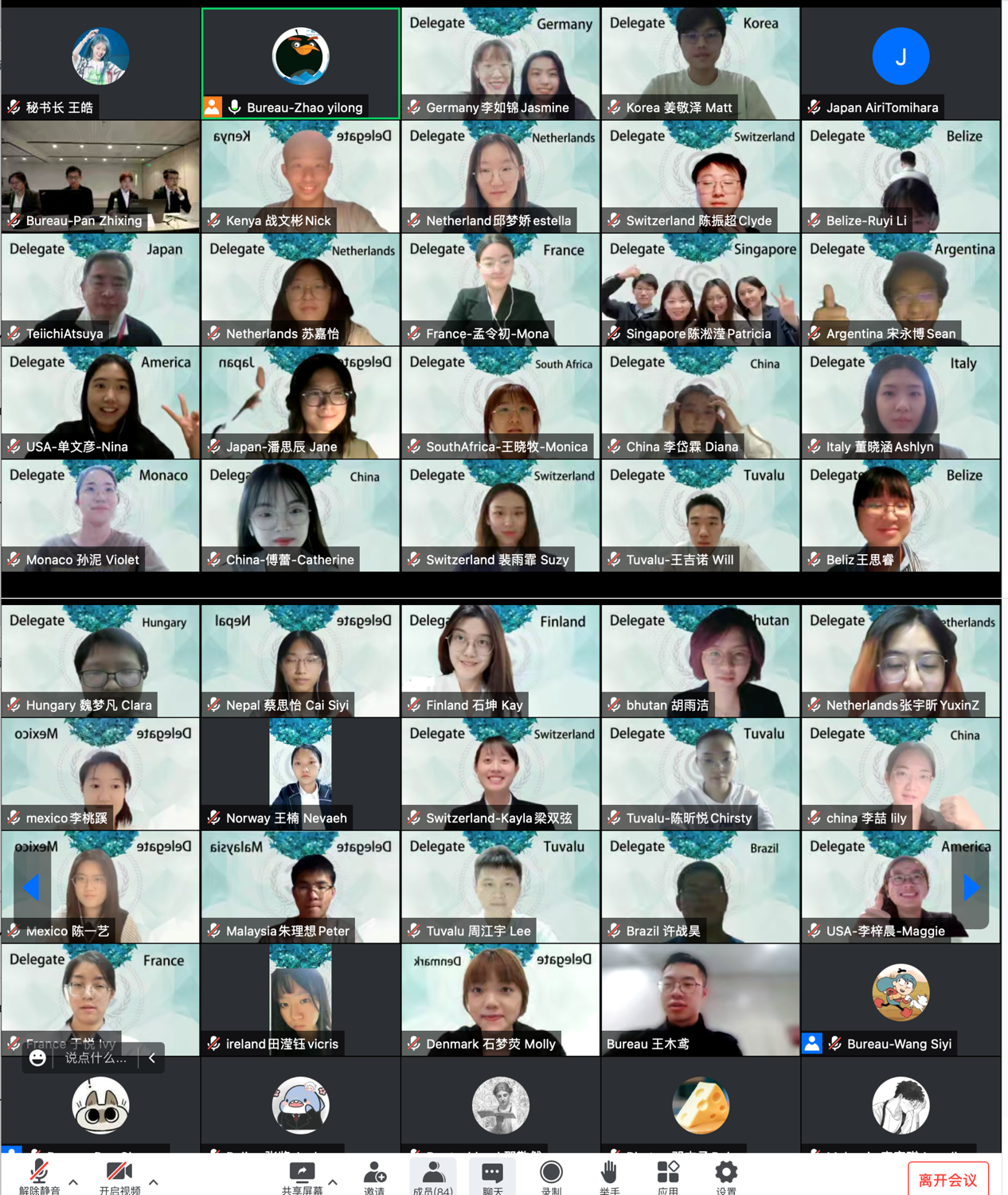
Group photo of participants
Simulated Negotiation
On the first day of the conference, discussions started around the topic of Global Stocktake (GST). During the informal consultation session, the delegates quickly assumed their negotiating roles and actively stated their respective national positions and interests. After the speeches, the chairpersons summarized the expectations of each country for the negotiations. In the two sessions in the afternoon, delegates mainly discussed issues such as fairness in climate governance, guiding institutions, duration and cycles, national participation, and the level of information integration in the Global Stocktake. Through several rounds of active communication and exchange, the delegates reached consensus on some key negotiation points in the overarching elements Activity A in the Global Stocktake, but some core concerns still lacked consensus.
On the second day of the GST negotiation session, delegates engaged in intense discussions on the issue of loss and damage in the Global Stocktake. Representatives of developed countries such as Singapore and the United States believed that the content of the Stocktake should be limited to loss and damage caused by climate change; while representatives of developing countries, represented by Argentina, argued that many countries’ capacity-building was insufficient to support the judgment of loss and damage and the causal relationship with climate change, disagreeing with the inclusion of restrictive language. Developed and developing country representatives had intense discussions, ultimately reaching a consensus to include weakened restrictive language, taking into account loss and damage issues related to climate change during the stocktake. With the active efforts of the representatives of all countries, the GST draft was successfully passed.
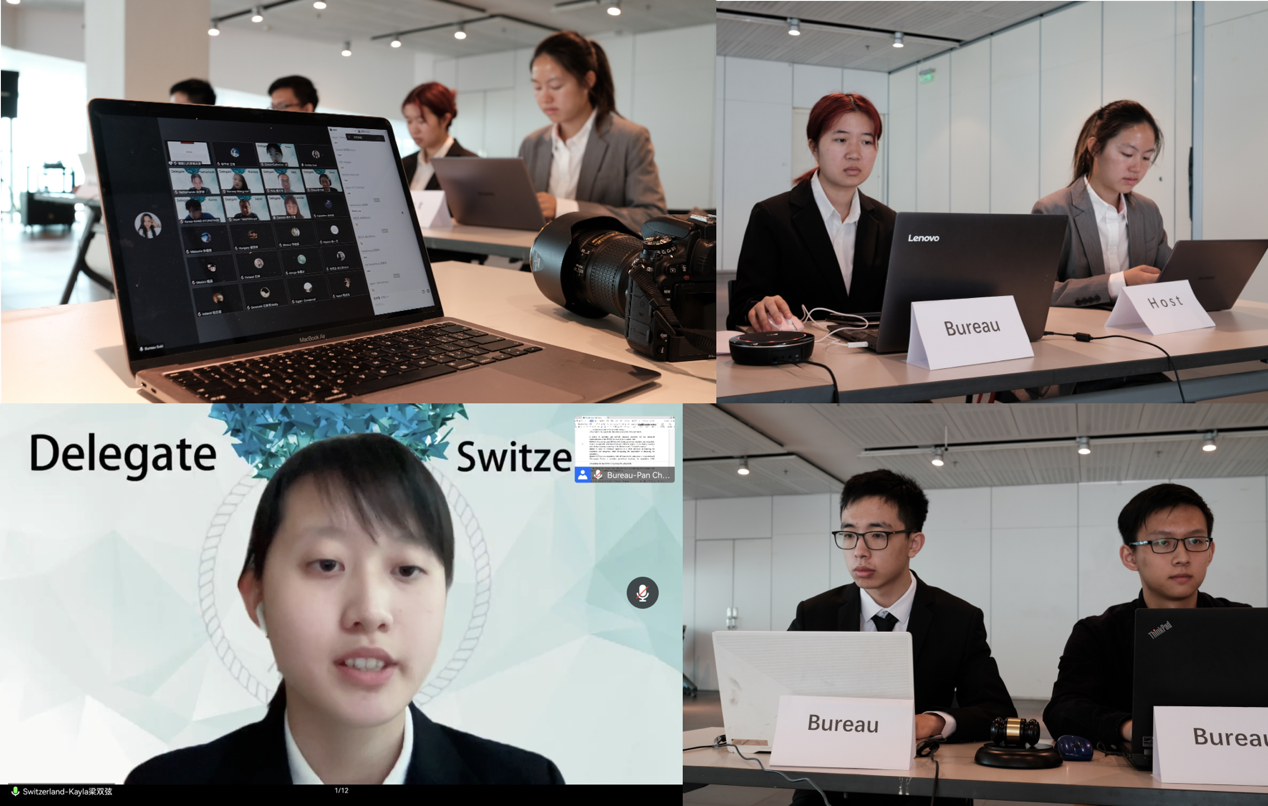
Photos of some negotiators
On the second day of negotiations, delegates conducted several consultations and completed negotiations on the preamble, definition, scope, and transparency in the New Collective Quantified Goal (NCQG) draft. Delegates held detailed discussions on the clear definition of climate finance and NCQG, eventually reaching a consensus. In addition, the topics that received particular attention included balancing the allocation of funds between adaptation and mitigation, ensuring fair distribution among different regions of developing countries, and enhancing national ownership in the allocation of financial resources. All Parties agreed that the NCQG should establish a common transparency framework applicable to all Parties, provide information on the commitments and implementation of donations by each Party in an effective and flexible manner, and enhance the transparency of actions and support.
At the end of the negotiations, the delegates submitted the draft guiding opinions on the Global Stocktake to the plenary session of the MCCCOP 7 for review and formed a resolution based on the approved draft. The presiding countries of each group delivered their respective feelings and closing statements at the closing ceremony.
Roundtable Forum
As a special feature of MCCCOP 7, the Expert Roundtable Forum was held on September 24th, where experts and scholars from various fields and young guests shared their interesting experiences in environmental protection work and discussed and exchanged ideas with the students.
Wu Qingru, Assistant Researcher from the School of Environment, shared her experiences in the Qinghai-Tibet scientific expedition and her journey and research experience in mercury pollution-related studies, giving the delegates a more intuitive understanding of environmental science investigation work. She stressed that research, especially in the environmental field, should be based on field research and grassroots exploration to understand the essence of scientific problems.
Lin Yuyang, CEO of Beijing Qianyuhui Environmental Technology Co., Ltd. (QYH), introduced the development history of the carbon market globally and in China, and explained the application value of blockchain technology in the carbon market field. He pointed out that blockchain technology can effectively solve the data security and authenticity issues of the carbon market, ensuring verifiability and traceability, which greatly benefited the delegates.
Guan Liao, the founder of Know Carbon, shared his thoughts on the carbon market from an entrepreneur’s perspective, and encouraged everyone to think about the current problems and potential business opportunities in the carbon market. He emphasized that entrepreneurs need to have a thorough understanding of the market environment, that the core pursuit of entrepreneurs in the carbon market field is to gain market recognition by creating products through technical means. Entrepreneurs should continuously refine and strengthen their products during the process of interacting with the market.
Public welfare pioneer Zhang Boju emphasized that climate change is a public governance issue that involves the complex interplay of nature, society, technology, economy, and management. Natural resources and climate are closely related to the real risks faced by humans. Climate governance should be promoted comprehensively by using the power of law and people through the formulation of laws and public policies, and rational planning, etc. It also required the joint action of government, enterprises, media, scholars, the public, and public welfare organizations.
Liu Beibei, a senior protection commissioner of the China Felid Conservation Alliance (CFCA), shared her experiences in animal protection research. She introduced her work from bird protection in Danjiang Wetland to the current CFCA organization, explained several animal protection cases, which allowed students to understand the strategies and values of animal protection work.
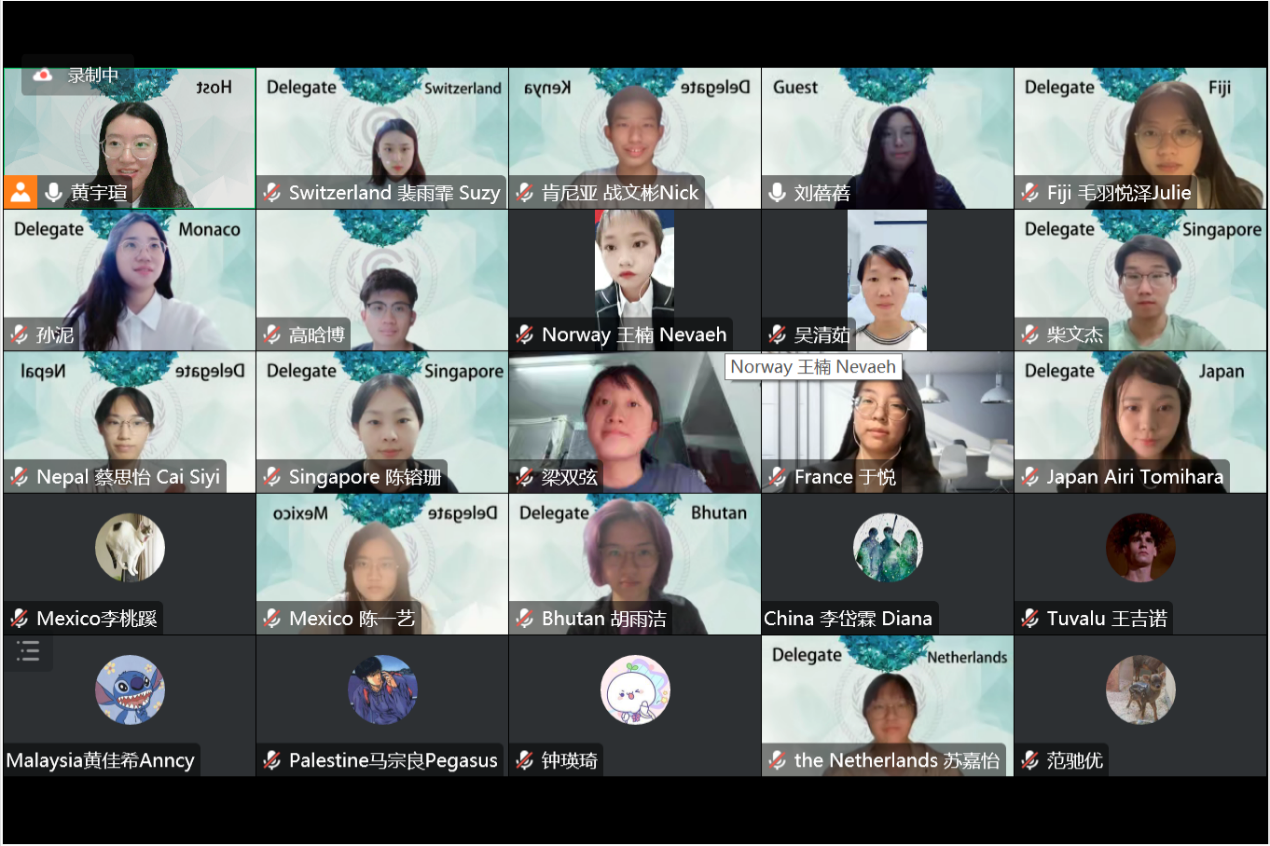
Roundtable Forum Group Photo
The MCCCOP draws on the agenda of the United Nations Framework Convention on Climate Change (UNFCCC) Conference of the Parties, aims to reproduce the climate convention negotiation process through plenary sessions, contact group meetings, bilateral consultations, and other sessions. The purpose of this event is to train students’ ability to comprehensively apply professional knowledge in climate change, environmental diplomacy, international relations, and other fields, grasp the cutting-edge issues of climate negotiations, learn international conference procedures and etiquette, and practice English expression, communication, negotiation, and consensus-building skills. The organizer students can also exercise their coordination and organization abilities through pre-conference training, moderating negotiations, inviting experts, and promoting the event.



